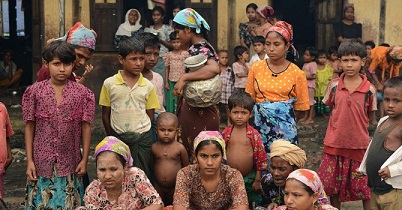CAIRO: Christiane Amanpour delved into Egypt’s political future in one of her last episodes days before she rounded off her career at CNN.
A video conference brought former IAEA chief and reform advocate Mohamed ElBaradei, and key figure at the National Democratic Party Ahmed Ezz to the studio, while human rights and democracy advocate Saad Eldin Ibrahim was at the studio.
“It is not uncommon for a country to declare emergency powers in times of national crisis, but what happens when the state of emergency lasts for almost 30 years, as it has in Egypt, with a population of nearly 80 million people and a professional class that often needs to look abroad for jobs and political freedom,” said Amanpour in her introduction.
She first spoke to ElBaradei, asking about his bid for the presidency, who denied that this was his primary goal, adding that above all he wishes to see Egypt make a genuine shift towards democracy.
ElBaradei said that he seeks guarantees in every democracy in the world, which are a free and fair election, judicial supervision, international supervision, and to make sure that candidates have equal opportunity in the media.
“I am organizing a grassroots movement to push the government,” he said, “so that by the time of the presidential elections next year the government would understand that maintaining the status quo is a dead-end street.”
When Amanpour pointed out that he lacks the support of powerful institutions, such as the military or the intelligence, ElBaradei said that “all the indicators are saying that unless we change and change drastically and empower people, we are going nowhere. So I believe that even the military, the so-called institutions understand that status quo is not sustainable.”
“We have around 100,000 signatures [to support the reform campaign]. I think it would be a snowball effect. But there’s a lot of fear remnant from, again, 50 years of repression,” he said.
Amanpour introduced Ahmed Ezz with a video from President Obama’s speech in Cairo last June, in which he talks about the importance of democracy.
Evading the question of why there is no clear succession in Egypt, Ezz said that he first wanted to comment on ElBaradei’s remarks.
“My party, the NDP, has made it clear that it welcomes Dr. ElBaradei to join the political fray,” he said.
“I wish Dr. ElBaradei will do that, because in that situation, he will have to make his position clear on many issues. I have heard Dr. ElBaradei say that he is allying with a huge coalition of Egyptians, when, in fact, he is allying himself with a fringe coalition, either of the extreme left, nurturing old, tired, tested and failed policies of the ’60s, or with an extreme right-wing Muslim brothers, who are nurturing democracy a la Ahmadinejad,” he said.
“The only obstacle to ElBaradei’s candidacy is ElBaradei himself,” he said.
As a pretext to the on-going emergency law, Ezz said: “In this heightened level of security awareness in the world, every country is grappling with how better to protect its citizens, including Egypt, and it has always been controversial. You have your Patriot Act. Our emergency law is our Patriot Act.”
“That has only and exclusively been used to either combat terror or to avert the threat of terror. In no way has it been used to suppress either political or social or economic life,” he added, saying that the emergency law can only be lifted when the Middle East is at peace with itself.
The show ended with an interview with Saad Eddin Ibrahim, who spent three years in prison on charges of defaming the Egyptian state, but was later acquitted and is now living in the United States teaching at Drew University.
Ibrahim said that ElBaradei has a chance at the presidency as “everything is possible nowadays” pointing out that no one believed that the Soviet Union could collapse.
However, the problem with ElBaradei is that he is a challenger, according to Ibrahim. “We heard from an apologist for the regime, Mr. Ahmed Ezz … it will take nearly a miracle to change [the regime] but miracles do happen in the Middle East. After all, that is a region where all the miracles took place,” he said.
Ibrahim predicted that Mubarak will most likely be running in the 2011 elections as his son [Gamal] does not seem to have created the kind of appeal that would be necessary for a sustainable and serious campaign.”
He concluded that ElBaradei will have a good chance and that millions of Egyptians are willing to rally behind him.
“If external powers could also demand that the next election be free and fair and transparent, under international supervision, I think we have a very good chance of changing Egypt,” he said.

